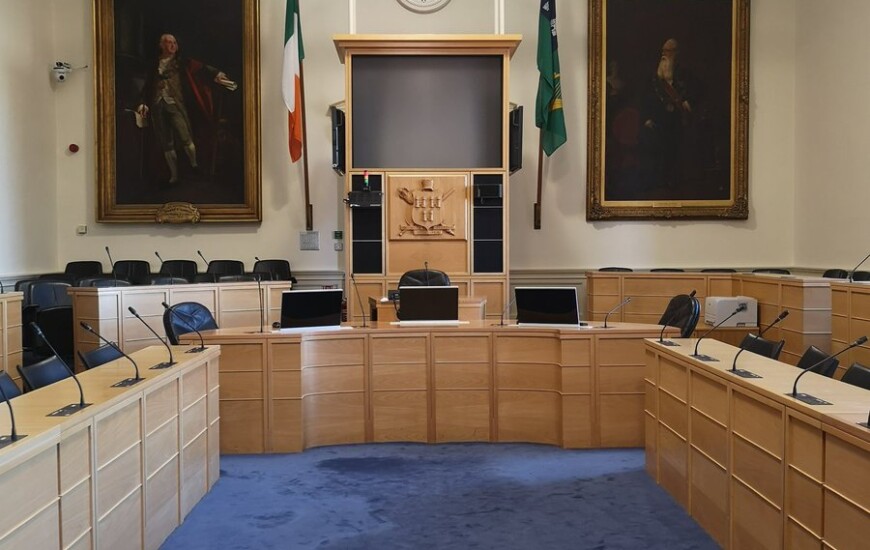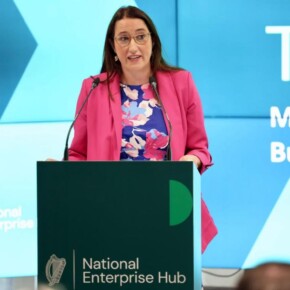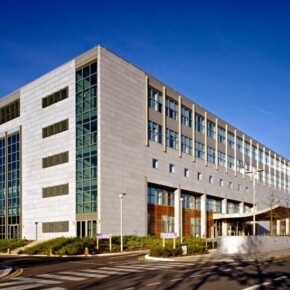Soc Dems to oppose Dublin City Council budget
Mike Finnerty 21 Nov 2025
Social Democrats councillors will vote against the proposed Dublin City Council budget on Monday.
TD Rory Hearne said that the budget would have a “disproportionate” impact on Dublin City Council tenants, who are set to pay more should the budget pass.
The Social Democrats will join Sinn Féin and People Before Profit, along with independents, in voting down the budget, leaving the budget in the hands of Labour and Green councillors.
Labour and the Greens hold 12 seats between them – this week, their counterparts on Fingal County Council voted against the budget, putting pressure on their Dublin City Council counterparts to do the same, which would deprive Fianna Fáil and Fine Gael of the majority needed to pass the budget.
Last week, Sinn Féin’s councillors announced they would be opposing the budget, with People Before Profit calling proposed rent increases for Dublin City Council tenants “stealth austerity.”
The Dublin North-West TD said “there is a deficit in local authority funding, especially when measured against the long list of responsibilities, projects and costs that Dublin City Council is expected to deliver on – its level of funding is not sufficient for both current expenditure and capital projects.”
Hearne noted that in 2024, Dublin City Council accrued €110 million in rent payments, well exceeded by its total spend of €180 million administering and maintaining the 29,000 or so homes it owns in the city.
“This is a clear gap that must be closed via additional revenue if Dublin City Council is to deliver on its commitments to provide effective maintenance, complete capital projects, turn around voids in a timely manner, and expand its current provision of services to empower direct delivery of housing.”
“There’s no denying the housing and cost of living crises that are plaguing communities across the country – Dublin City is no exception – and many of those in local authority tenancies find themselves in an extremely vulnerable position.”
“If rents are raised and it becomes unaffordable for tenants to remain in situ, looking to the private market provides no respite – raising council rents will directly result in more families being driven into homelessness, with almost half of those who rent from local authorities at risk of poverty after paying their current rate,” he said.
Hearne warned “those in receipt of the Housing Assistant Payment are also in a precarious position as they themselves are paying sky-high private rents – in many cases, the HAP is not enough to keep tenants from falling into poverty.”
“The solution to this problem will not be found in raising rents, but by ensuring that levies and taxes due to DCC are recouped, and by creating new funding streams that don’t risk evicting vulnerable tenants – over €115 million euro can be made available annually through fairer, untapped revenue sources.
“As of June 2025, DCC is owed €10 million in unpaid derelict site levies, and a further €93 million in unpaid section 48 developer contribution fees, a figure that has increased by 60% in the last five years.
Hearne called for a tourist tax on Airbnbs, which has the capacity to raise €12 million, and despite not being included in the Programme for Government, it is supported by 65% of Dubliners.
“Progressive measures like these and the recouping of taxes and levies already due to Dublin City Council would create a funding stream to tackle the local authority’s deficit without raising rents and placing tenants in housing precarity – this is the only viable approach,” the Soc Dems housing spokesperson said.
“Concurrently, lifting the €118 million national borrowing cap for local authorities to help transform vacant council properties into livable homes would go a long way for those in need of housing – it is clear that this cap is unsuitable if local authorities are to meaningfully contribute to tackling the housing crisis.
“Dublin City Council must pursue a more equitable, sustainable funding strategy via these channels, which should include a revised and progressive rent model that incorporates safeguards and genuine engagement with tenants.”











